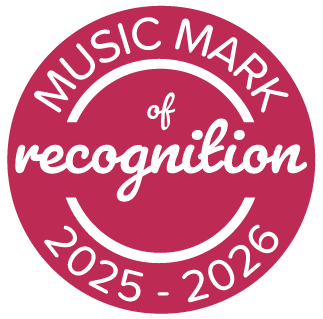

Being a Historian at Gomeldon Primary School
Intent
At Gomeldon Primary School, we are committed to a high-quality, enquiry-based history curriculum that will help pupils, in particular our most disadvantaged learners, to gain a coherent knowledge and understanding of Britain’s past and that of the wider world. It should inspire pupils’ curiosity to know more about the past as an explanation of the present and future. Enquiry-based learning equips pupils to ask perceptive questions, think critically, analyse evidence, sift arguments, and develop perspective and judgement. Being a historian helps pupils to understand the complexity of people’s lives, the process of change, the diversity of societies and relationships between different groups, as well as their own identity and the challenges of their time. Where possible, we will capitalise on our rich local-history and enrich learning opportunities through educational visits and visitors to the school.
How does being a Historian link with our school values:
Reflection: Pupils will reflect on what it means to be a historian and the key knowledge and skills required to do this successfully. Pupils will learn about many periods of history, key figures and key events, thus providing them with the opportunity to reflect on and connect the past over time alongside their own history.
Resourcefulness: Pupils will be encouraged to be resourceful in their approach to enquiry in history. They will build, consolidate and deepen layers of knowledge and be encouraged to develop an investigative and problem-solving approach which will enable them to ask and answer key questions.
Resilience: Pupils will develop resilience by connecting with both the past and historical figures from key periods. They will learn how to empathise and understand how the past shapes the present and the future. Pupils will need to be able to accept feedback from others who may respectfully challenge their views and opinions.
Relationships: Pupils will work collaboratively as historians to explore key questions, sharing ideas and deciding on a suitable approach to an enquiry. Pupils will be supportive of each other and respectful as they share ideas and celebrate each other’s successes.
Implementation
Whilst being a historian, pupils will develop: a broad historical vocabulary; chronologically secure knowledge; an understanding of key historical concepts; an appreciation of how evidence can be confirmed or refuted as valid, including how arguments and interpretations about the past have been constructed; and ask and answer questions about change, cause, similarity, difference and significance.
In Key Stage One, pupils learn about: changes within living memory; events beyond living memory that are significant nationally or globally; the lives of significant individuals in the past who have contributed to national and international achievements and significant historical events, people and places in their own locality.
In Key Stage Two, pupils are taught about: changes in Britain from the Stone Age to the Iron Age; the Roman Empire and its impact on Britain; Britain’s settlement by Anglo-Saxons and Scots; the Viking and Anglo-Saxon struggle for the Kingdom of England; a local History study; British History post-1066; the achievements of the earliest civilisations; Ancient Greece and a non-European society that provides contrasts with British history.
History is taught through termly enquiry blocks, either as a lead or a secondary state of being. This has been carefully mapped across a 2-year cycle in order to ensure full curriculum coverage. All pupil historians are supported through the school’s universal and targeted provision offer.
Impact
- Pupils will be provided with termly opportunities to showcase their learning and historian skills, evidencing the impact of quality first teaching in the subject.
- Pupil voice will provide evidence that pupils are able to talk with confidence and enthusiasm about what they have learnt in history using subject specific vocabulary. Pupil voice will also demonstrate that many pupils enjoy history and are able to recall their learning over time – they will be encouraged to make connections with prior learning.
- Book scrutinies will demonstrate that history is being taught at an age appropriate standard across each year group with some opportunities planned in for pupils working at greater depth and appropriate support for those pupils with additional needs. Work will be good quality and demonstrate pupils are acquiring knowledge, skills and vocabulary in an appropriate sequence. Assessment and book scrutinies will evidence that pupils can demonstrate knowledge and understanding, use key vocabulary and cover all skills in the progression document.
Over time:
- Pupils will become increasingly critical and analytical within their thinking, developing some of the skills required in KS3. Making informed and balanced judgements based on their knowledge of the past.
- Pupils will become increasingly aware of how historical events have shaped the world that they currently live in.
- They will also have a further understanding of history on a local level and on a small-scale.
- Pupils will develop enquiry skills to pursue their own interests within a topic and further questioning.
- Pupils will retain prior learning and explicitly make connections between what they have previously learned and what they are currently learning.
- Where applicable, pupils will have encountered or participated in high-quality visits/visitors to further appreciate the impact of being a historian – it is hoped this will foster a life-long enthusiasm for history. We aim to stimulate ambitions so some pupils recognise career possibilities and grow up wanting to enter historically focussed careers such as archivists, museum curators, archaeologists or research analysts.







